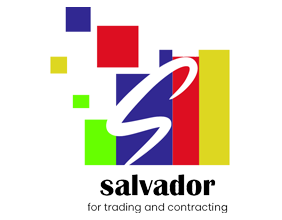- سلفادور الرائده في صناعه الكومباكت والكوريان
- 01004241714
- 01226177161
- info@salvador-eg.com
The Ethics of On-line Journalism: Balancing Speed and Accuracy
On-line Playing Basics
مايو 20, 2023Online Gambling Basics
مايو 20, 2023The advent of the internet and the rise of online journalism have revolutionized the way news is disseminated. News organizations are always challenged to deliver information quickly, catering to the ever-growing demands of the digital age. However, within the quest for speed, the fundamental ethical ideas of journalism, equivalent to accuracy and fairness, can generally be compromised. This article explores the fragile balance between speed and accuracy in on-line journalism and highlights the ethical considerations that journalists should navigate to uphold the integrity of their profession.
The Need for Speed
In the period of real-time news, readers have come to anticipate instantaneous updates and immediate access to information. Online journalists face immense pressure to be the first to break a narrative, given the extreme competition amongst news outlets. This desire for speed is driven by the need to seize readers’ consideration, generate website traffic, and retain a loyal audience. Nonetheless, this race towards the clock can lead to hasty reporting and the dissemination of inaccurate or incomplete information, which can have severe penalties for people and society as a whole.
Ethical Implications
Accuracy is the bedrock of journalism, making certain that news is reliable and trustworthy. While journalists attempt to verify facts and current balanced narratives, the urgency to publish usually leaves little time for thorough truth-checking. On-line journalists should consider the potential harm caused by publishing unverified information, as it can mislead the general public, damage reputations, and erode trust within the media.
Sustaining ethical standards requires journalists to strike a fragile balance between speed and accuracy. Implementing rigorous editorial processes, such as cross-referencing sources and seeking knowledgeable opinions, is crucial in mitigating the risk of misinformation. Transparency and accountability also play a vital position, as promptly correcting errors and issuing retractions demonstrates a commitment to truth and accuracy.
The Role of Technology
Advancements in technology have each enabled and sophisticated the pursuit of ethical on-line journalism. On one hand, digital tools and platforms provide journalists with unprecedented access to information and sources, expediting the reporting process. However, the rise of citizen journalism and social media amplifies the challenges of sustaining accuracy, as unverified consumer-generated content can easily spread misinformation. Journalists must navigate these digital landscapes responsibly, using technology as a tool to enhance accuracy somewhat than sacrificing it for speed.
Conclusion
In the realm of on-line journalism, the ethical dilemma of balancing speed and accuracy persists. While the digital age calls for immediacy, journalists should stay committed to the core ideas of their profession. By implementing robust truth-checking processes, being clear about corrections, and prioritizing accuracy over sensationalism, online journalists can uphold their ethical obligations to the public. Striking the correct balance ensures that news consumers are well-informed, while additionally preserving the integrity and trustworthiness of the profession in the digital era.

